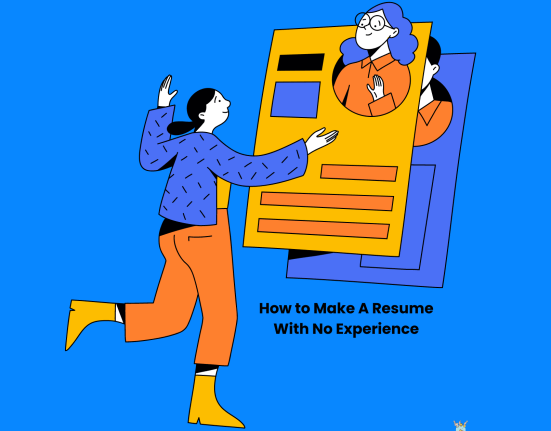Nowadays, finding jobs that don’t require a degree is way easier. Many companies, like Fountane Inc. are more interested in ‘what you can do’ than ‘if you’ve been to college’. They’re after skills, not degrees.
And that’s not it! The gig and creator economy has also opened up alternative career paths for people who want different options. The internet enables you to showcase what you’re good at without going through the college route. Result? Fame, name, authority, and a job!
So, if you’re on the lookout for alternative career paths and jobs that don’t require a degree, now’s a great time. In this article, I’ll give you a list of traditional and non-traditional jobs that you can get without a degree.
Top 15 jobs that don’t require a degree
Let me give you a disclaimer first. The jobs or career paths mentioned in the list are open to everyone. While having a degree is always helpful, it isn’t a necessity. You can enter any of the job roles with or without a degree. Now, let’s start:
1. Software Developer
This isn’t a prank. Gone are the days when you needed a computer science degree. There are numerous companies, like Fountane Inc., that hire developers without a degree.
A typical day for a software developer involves writing, debugging, and testing code to create or improve software applications. The essential skills include proficiency in programming languages such as Python, Java, or JavaScript, problem-solving abilities, and attention to detail.
While having a degree in computer science can be advantageous, it isn’t a necessity anymore. Many companies today hire remotely and pick candidates with visible proof of work rather than a degree.
2. DevRel/Community Manager
This is one of the most high-paying, exciting, and demanding jobs that don’t require a degree. (Strictly, in my opinion.)
DevRel, short for Developer Relations or Community Managers, engages with developer communities to foster relationships, gather feedback, and promote products or services. Your day as a developer often involves organizing events, creating content like tutorials or blog posts, and engaging with developers on social media platforms or forums.
This is an alternative career path for computer science enthusiasts who like doing more than just coding. Excellent communication and interpersonal skills are crucial for this job, along with a deep understanding of the target developer audience.
To become a DevRel or community manager, you need proven experience with content creation, communities, and relevant technical knowledge.
3. UI/UX Designer
UI/UX designers focus on creating intuitive and visually appealing user interfaces and experiences for digital products such as websites and mobile apps. Your day as a designer might involve conducting user research, creating wireframes and prototypes, and collaborating with developers to ensure designs are implemented correctly.
Skills including creativity, attention to detail, and proficiency in design tools like Adobe XD or Sketch are essential. While some designers have degrees in graphic design or related fields, many enter the field through self-directed learning, online courses, or by building a strong portfolio demonstrating their design skills and understanding of user experience principles.
4. Copywriter
Copywriters write compelling and persuasive written content for various mediums, including websites, social media, advertisements, and marketing materials. Your day as a copywriter may consist of researching target audiences, brainstorming ideas, and writing and editing copy to convey key messages effectively.
Copywriting is one of the most challenging and highest-paying career options in the gig economy. You need strong writing skills, creativity, and the ability to adapt tone and style to different audiences to become successful in this role.
Many MNCs ask for a degree in English, journalism, or communications but end up hiring copywriters with a strong social footprint and portfolio that showcase their ability to produce high-quality copy.
5. Social Media Manager
Oh, the most sought-after and abundant job role of the 21st century!
Social media managers are responsible for creating and implementing social media strategies to promote brands, engage with followers, and increase visibility and engagement. Your day as one may involve planning and scheduling content, monitoring analytics to track performance, and responding to comments and messages from followers.
Excellent communication skills, creativity, and knowledge of social media strategies and algorithm trends are key to success in this role. Today, almost every hiring in this job role depends on the candidate’s skill and portfolio rather than a degree.
6. Digital Marketer
This one is an extended version of social media management.
Digital marketers utilize various online channels such as email, social media, and search engines to promote products or services and drive engagement and conversions. Your typical workday as a digital marketer may involve creating and optimizing advertising campaigns, analyzing data to measure performance, and identifying opportunities for improvement.
This job role demands strong analytical skills, creativity, and a good understanding of digital marketing tools and techniques. Many digital marketers acquire skills through online courses, certifications, and practical experience gained through internships or freelance projects.
Yeah, no degree!
7. Graphic Designer
Graphic designers create visual concepts using computer software or by hand to communicate ideas that inspire, inform, or captivate consumers. Their day involves meeting with clients to discuss project requirements, developing visual concepts and layouts, and preparing designs for print or digital publication.
An average graphic designer is equipped with skills like creativity, attention to detail, and proficiency in design software such as Adobe Illustrator and Photoshop. Many graphic designers build their skills through self-directed learning, online tutorials, and freelance projects, gradually building a portfolio that showcases their talent and expertise.
8. Sales Representative
This one is arguably the most despised yet best job role in today’s times. Believe me when I say this – “The skill to sell is the best skill to have.” Well:
Sales representatives sell products or services to businesses or consumers, often through face-to-face interactions, phone calls, or online communication channels. Their workday involves identifying potential leads, following up on inquiries, and negotiating terms and agreements with customers.
To become a successful sales representative, you need strong communication and interpersonal skills, along with resilience and a results-driven mindset. While some employers may prefer candidates with a degree in business or a related field, practical sales experience and a proven track record of meeting sales targets can often be more valuable.
9. Digital Content Creator
Probably the most profitable and sought-after career path. Who doesn’t want to create content and earn lakhs every month?
Digital content creators produce various forms of multimedia content, such as videos, podcasts, or blog posts, to engage and entertain audiences online. A day in the life of a content creator involves researching topics, scripting, and recording content, editing videos or audio recordings, and promoting content across social media platforms.
Creativity, storytelling skills, and proficiency in content creation tools such as video editing software or blogging platforms are essential for success in this role. This is the only career path that never required a degree. Heck! Anyone and everyone can become a content creator today.
10. Data Analyst
Data analysts collect, process, and analyze data to help businesses make informed decisions and identify trends or insights. Their day may involve querying databases, cleaning and organizing data, and creating visualizations or reports to present findings to stakeholders.
The skillset of a data analyst includes strong analytical skills, proficiency in data analysis tools such as Excel or SQL, and attention to detail. While a degree in statistics, mathematics, computer science, or a related field can provide valuable technical skills, many data analysts enter the field through self-study, online courses, or boot camps focused on data analysis skills.
11. Web Developer
The creator economy and abundance of DIY project ideas make this one of the most demanding and exciting jobs that don’t require a degree.
Web developers design and build websites using programming languages such as HTML, CSS, and JavaScript, as well as frameworks and content management systems like WordPress or Drupal. The work of a web developer involves collaborating with designers to implement website layouts, writing code to add functionality or interactivity, and testing websites for usability and performance.
Proficiency in web development languages and tools, problem-solving abilities, and attention to detail is essential for success in this role. Most web developers today acquire skills through self-directed learning, online cohorts, and practical experience gained through building websites for personal projects or freelance clients.
Here’s our podcast with one of the most popular self-made web developers in India: FuelEd Unfiltered Podcast with Pratham
12. Digital Illustrator
Digital illustrators create visual artwork using digital tools such as drawing tablets and illustration software to convey ideas, concepts, or stories. Unlike graphic designers, who work on a complete piece or project, digital illustrators work on creating a specific illustration or piece of art.
To become a successful digital illustrator, you need strong drawing skills (on paper and devices), creativity, and proficiency in illustration software such as Adobe Illustrator or Procreate.
13. Virtual Assistant
You shouldn’t consider being a full-time virtual assistant, in my opinion. But if you look at it from the part-time angle, this is one of the best alternative career paths.
Virtual assistants provide administrative support to businesses or individuals remotely, handling tasks such as email management, scheduling appointments, and data entry. Their day may involve communicating with clients or team members via email, phone, or messaging platforms and completing assigned tasks efficiently and accurately.
Strong organizational skills, attention to detail, and proficiency in productivity tools such as Microsoft Office or Google Workspace are essential for success in this role. Many virtual assistants enter the field through practical experience gained from previous administrative roles or freelance work, gradually building their skills and client base over time.
14. Video Editor
A career in video editing is like a hen that lays golden eggs. No wonder.
Video editors manipulate and assemble recorded footage, graphics, and audio to create engaging and polished video content for various purposes, such as marketing, entertainment, or education. A typical workday involves reviewing raw footage, selecting the best clips, adding transitions and visual effects, and ensuring the final product meets the client’s or audience’s expectations.
Proficiency in video editing software such as Adobe Premiere Pro or Final Cut Pro, creativity, and attention to detail are some must-haves for success in this role. You won’t see anyone asking for a degree in this field; the only requirement is some proof of work. Video editors today develop their skills through hands-on experience, online tutorials, and experimentation with different editing techniques.
15. Photographers/Videographers
Photographers and Videographers capture and edit images and videos to document events, tell stories, or create visual content for various purposes such as advertising, journalism, or fine art.
Creativity, technical proficiency in photography equipment and editing software, and the ability to communicate effectively with clients and subjects are essential for success in this role. 5-7 years ago, you’d need a degree in Mass Communication to pursue a career in this field, but not anymore. All thanks to the creator economy.
How to get a job without a college degree?

First, there are obviously more job options and alternative career paths that you can get into without a degree. But the ones mentioned above are the most sought-after and profitable ones, in my opinion.
Now, getting a job without a college degree is entirely feasible in today’s job market. Here’s a roadmap for landing a great job solely based on skills:
Step 1: Learning and Upskilling
You don’t need to spend lakhs in a college when everything is available for free. Use the internet and online resources for learning and upskilling for free. Platforms like Coursera, Udemy, and YouTube offer a vast array of courses/playlists spanning various industries and skill levels.
Whether you’re interested in coding, digital marketing, graphic design, or any other field, there are at least a hundred free courses available to help you gain the necessary skills.
Step 2: Proof of Work
Next, focus on building a proof of work. This includes creating tangible examples of your skills and accomplishments. For instance, if you’re aspiring to be a web developer, build a portfolio of projects like Netflix Clone, Portfolio site, or anything better.
Similarly, if you’re aiming for a career in digital marketing, demonstrate your skills by running campaigns for a personal project or volunteering for a local organization.
Step 3: Social Footprint and Personal Brand
Use the power of social media to establish your presence and personal brand. Showcase your work, share insights and knowledge relevant to your field, and engage with others in your industry. Platforms like LinkedIn, Twitter, and even niche communities on Reddit can be valuable for networking and showcasing your expertise.
Remember that a skilled person with no exposure is nothing in front of a less-skilled individual with better exposure. Expose yourself, and build your online footprint now!
Step 4: Networking and Cold Outreach
There’s no man on this planet who isn’t aware of this quote – “Your network is your net worth.” Still, not many act on that.
You don’t have to wait to build a skill, portfolio, and personal brand before you start networking. Start doing it while you’re at step one.
Use cold outreach to connect with professionals in your desired field. Reach out to individuals for informational interviews, ask for advice, and demonstrate your passion and eagerness to learn. Building genuine connections can open doors to opportunities that may not be advertised publicly.
Conclusion
A decade ago, success without a degree was something to frown upon. But not anymore. Today, there are thousands of jobs that don’t require a degree. The only thing you need to do is build real-world skills and embrace the creator economy mindset.
Even better, recognize that you have the ability to create value and monetize your skills independently. Whether it’s freelancing, consulting, or creating digital products, the creator economy offers numerous avenues for generating income and building a successful career without the need for a traditional degree.
Pro Tip: Creator economy can set up for a good career instead of just a job.
FAQs
- Are there specific industries where it’s easier to find a job without a degree?
While the demand for skilled workers exists across various industries, some sectors, such as technology, digital marketing, and creative fields, maybe more accessible to individuals without a college degree due to the emphasis on practical skills and experience. - Do employers value certifications or experience more than a college degree?
Many employers prioritize practical skills, certifications, and relevant experience over a traditional college degree. Obtaining certifications in your field of interest and gaining hands-on experience through internships, freelance work, or personal projects can often be more beneficial for landing a job. - Can I still advance in my career without a college degree?
Absolutely. Advancement in your career is possible through continuous learning, acquiring new skills, networking, and demonstrating your value through your work. Employers increasingly value skills and experience over formal education when considering candidates for promotions or leadership roles. - How can I address the lack of a degree in job applications or interviews?
Focus on highlighting your relevant skills, experience, and achievements in your resume and cover letter. During interviews, emphasize your passion for the field, your ability to learn quickly, and the practical skills you bring to the table. Be prepared to discuss how you’ve overcome challenges and succeeded in your career without a college degree. - Are there any limitations to pursuing a career without a degree?
While many opportunities exist for individuals without a college degree, some industries or specific roles may have strict educational requirements. It’s essential to research your desired field and understand any potential limitations. Additionally, continuous learning and upskilling can help you stay competitive in the job market. - What resources are available for further learning and skill development?
There is a wealth of resources available for further learning and skill development, including online courses, tutorials, workshops, and networking events. Platforms like LinkedIn Learning, Skillshare, and Meetup offer opportunities to expand your knowledge and connect with industry professionals. Additionally, seeking mentorship and joining relevant communities can provide valuable support and guidance in your career journey.











Leave feedback about this